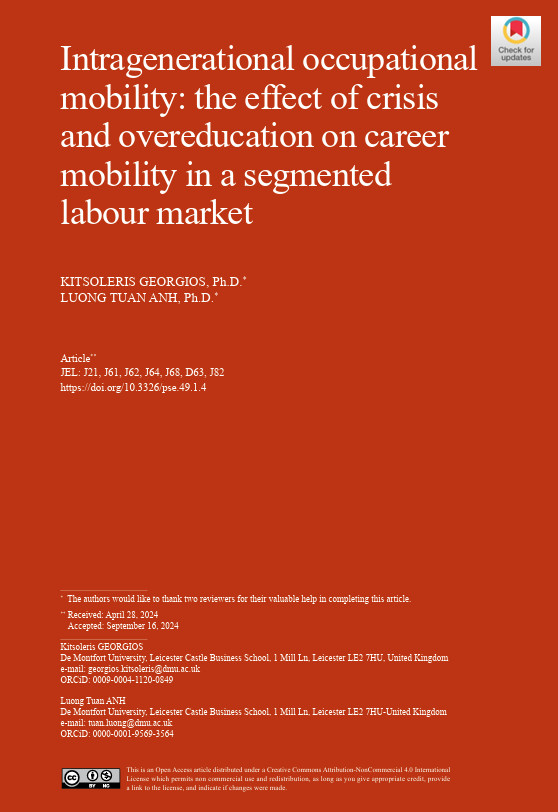Intragenerational occupational mobility: the effect of crisis and overeducation on career mobility in a segmented labour market
DOI:
https://doi.org/10.3326/pse.49.1.4Keywords:
social mobility, occupational mobility, overeducation, economic crisis, public sectorAbstract
This paper explores occupational and employment mobility over the previous decade in Greece and contributes to a better understanding of the consequences of the sovereign debt crisis. Our findings suggest that downward mobility was the common trend in intra-generational occupational mobility during the first period of the crisis. Significant changes occurred between 2011-2015. The recovery is apparent during the third bailout program with higher upward occupational and employment movements. However, polarization in the middle-paid professions was noticed. Additionally, this paper highlights the role of education in career mobility and the problem of overeducation. The empirical results reveal that tertiary graduates were more likely to move downward during the first period of the crisis even though overeducated workers had more possibilities to experience upward mobility. Overeducation in Greece seems to be the result of the increasing number of tertiary graduates, low proportion of high-skilled job positions and high levels of unemployment.

Downloads
Published
Issue
Section
License
Copyright (c) 2025 Georgios Kitsoleris, Dr Luong Tuan Anh

This work is licensed under a Creative Commons Attribution-NonCommercial 4.0 International License.








